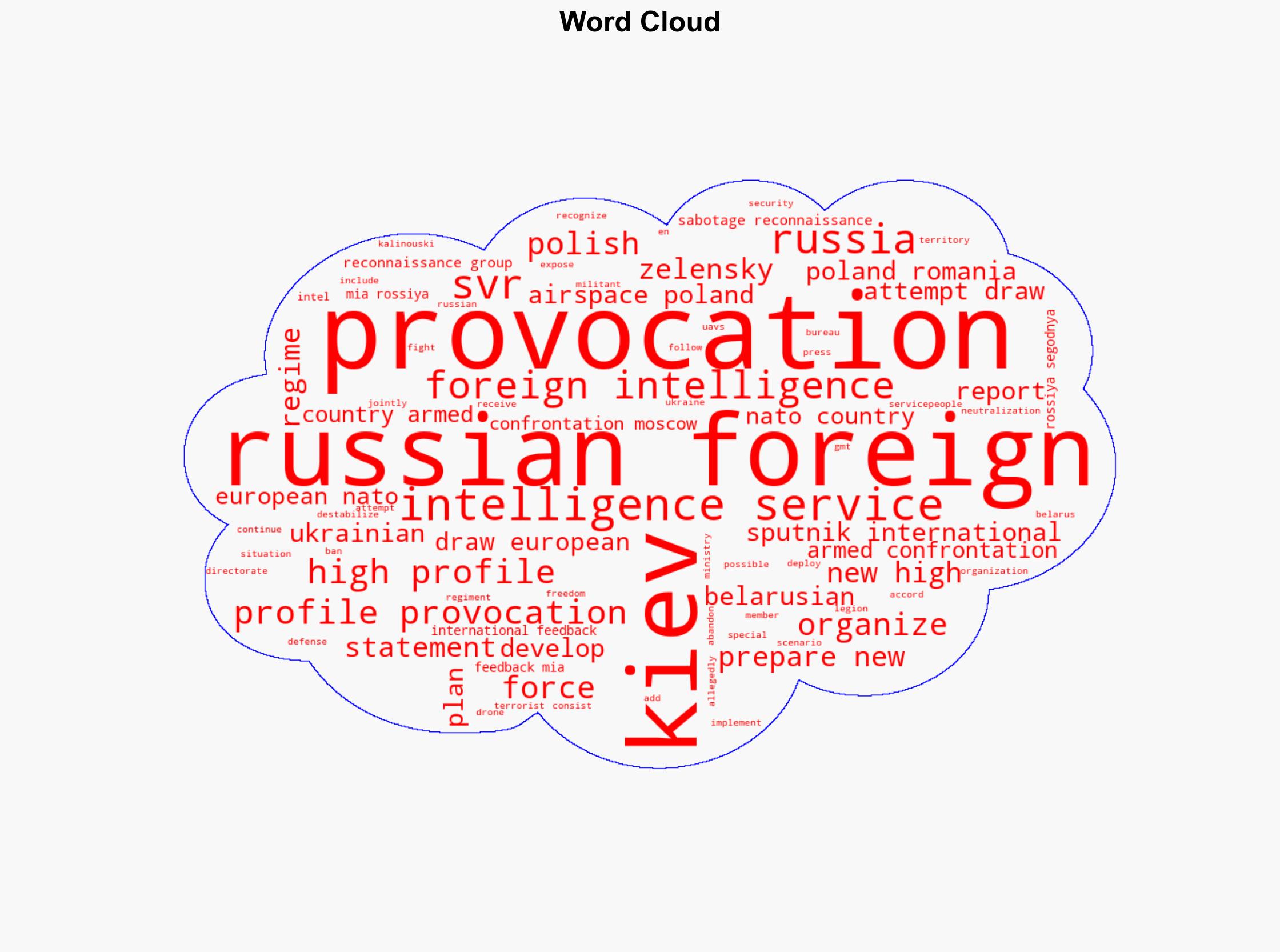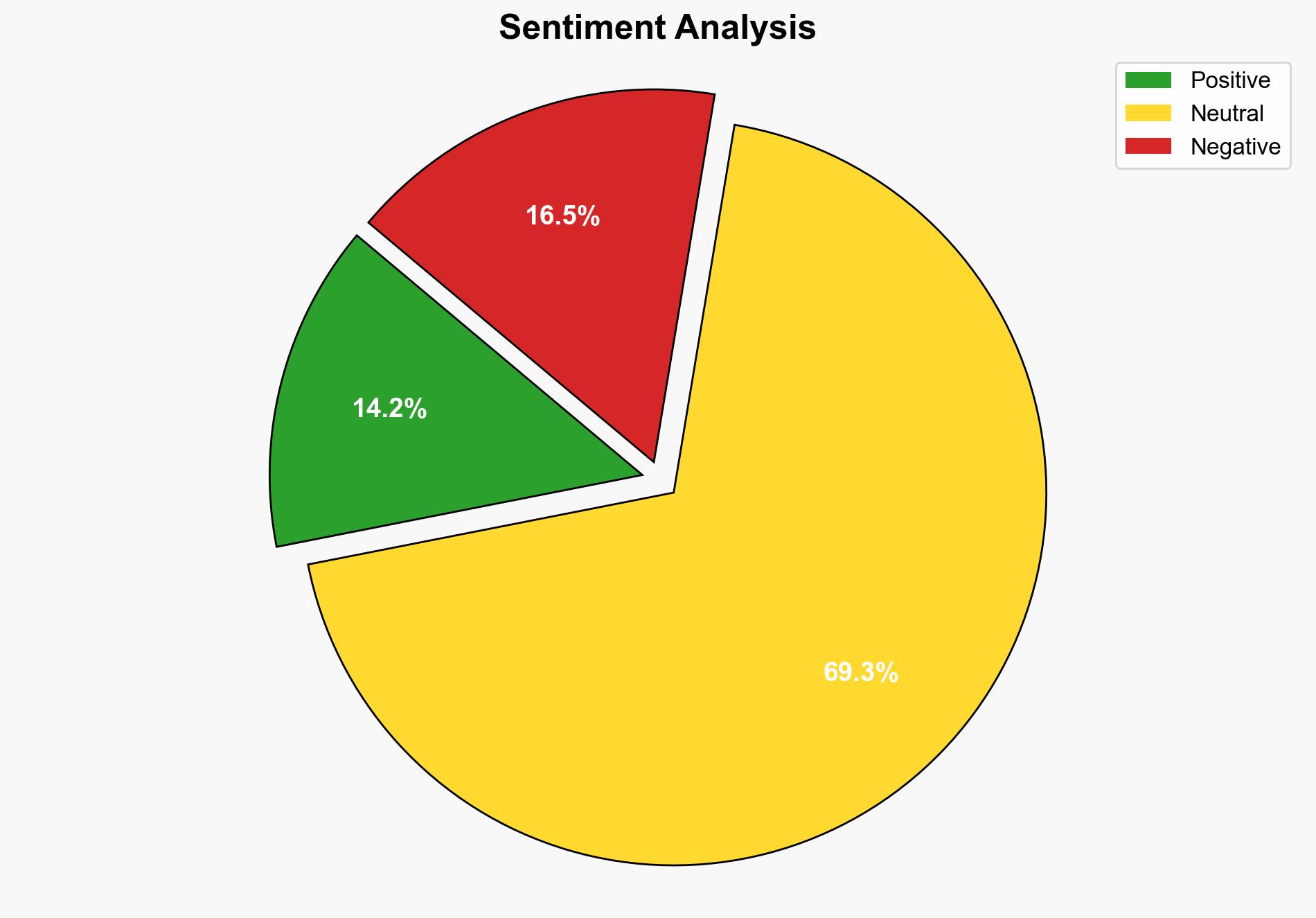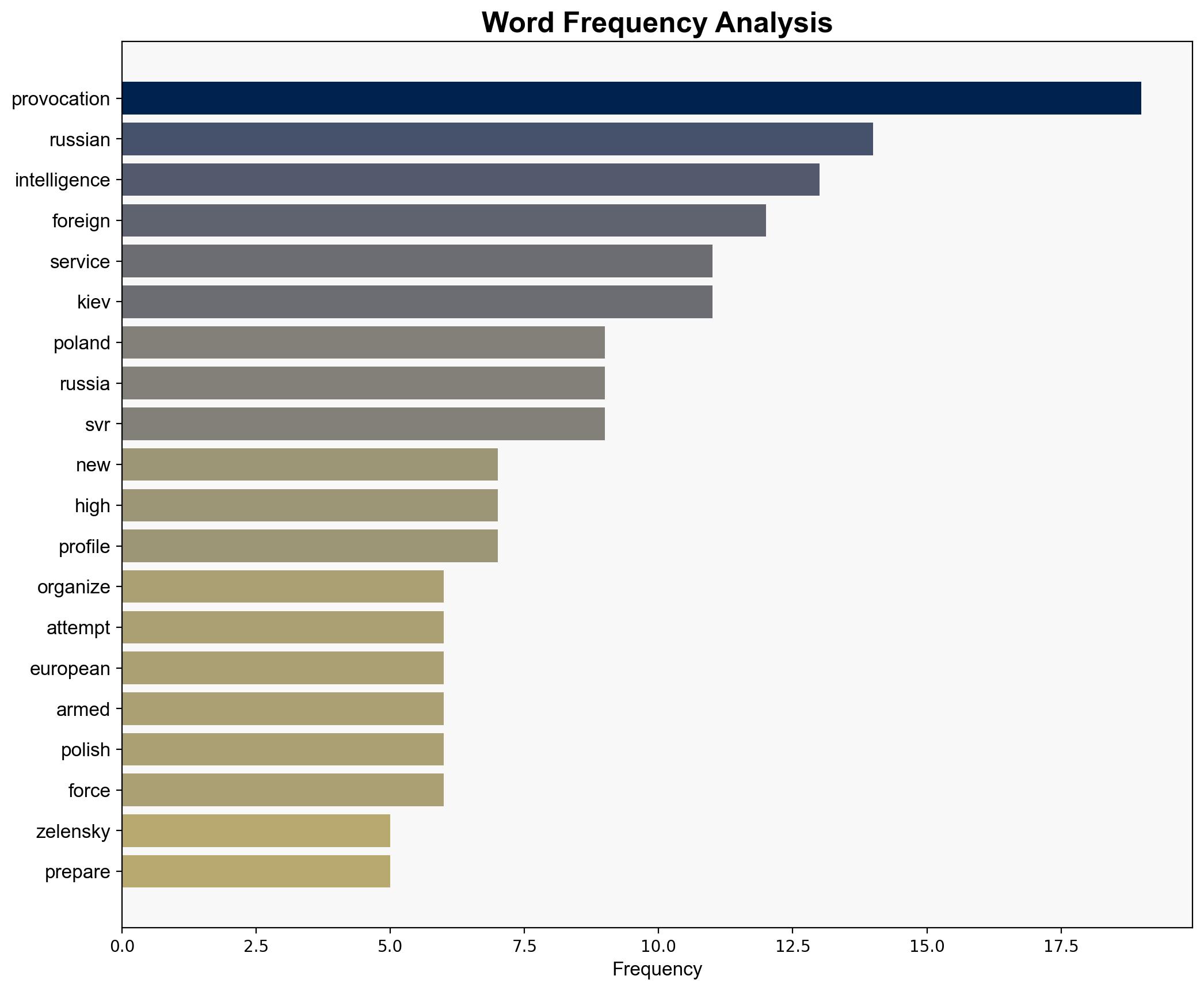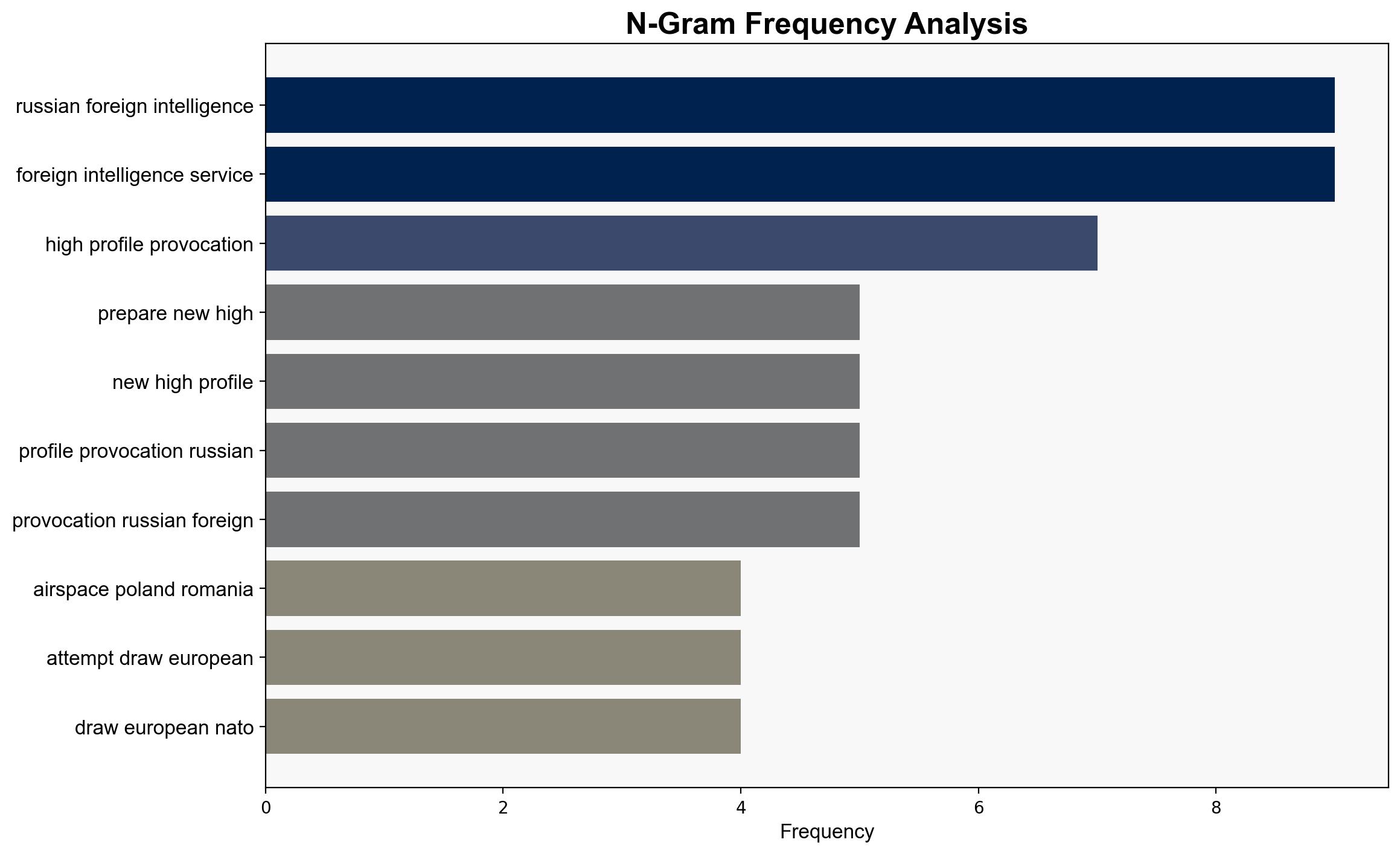Ukraine Preparing New High-Profile Provocation Russian Intel – Sputnikglobe.com
Published on: 2025-09-30
Intelligence Report: Ukraine Preparing New High-Profile Provocation Russian Intel – Sputnikglobe.com
1. BLUF (Bottom Line Up Front)
The most supported hypothesis is that the report from Russian intelligence is part of a strategic narrative to discredit Ukraine and potentially justify future actions by Russia. Confidence in this assessment is moderate due to the lack of corroborating evidence from independent sources. Recommended action includes increased intelligence sharing among NATO members to verify claims and prevent potential escalation.
2. Competing Hypotheses
1. **Hypothesis 1**: Ukraine is indeed planning a high-profile provocation involving UAVs and sabotage reconnaissance groups to draw NATO into a direct confrontation with Russia. This is supported by the detailed nature of the alleged plans and the involvement of multiple actors as reported by Russian intelligence.
2. **Hypothesis 2**: The Russian intelligence report is a strategic deception aimed at framing Ukraine as an aggressor to justify Russian military or political actions. This hypothesis is supported by the historical context of similar claims by Russia and the lack of independent verification.
Using Analysis of Competing Hypotheses (ACH), Hypothesis 2 is better supported due to the absence of independent corroboration and the potential for strategic gain by Russia in promoting this narrative.
3. Key Assumptions and Red Flags
– **Assumptions**: Hypothesis 1 assumes that Ukraine has the capability and intent to provoke NATO directly, which is a significant escalation. Hypothesis 2 assumes that Russia has a motive to fabricate such a narrative for strategic advantage.
– **Red Flags**: The report’s reliance on a single source (Russian intelligence) without independent verification is a major red flag. The repetitive nature of the claims suggests potential cognitive bias or narrative reinforcement.
– **Missing Data**: Lack of evidence from NATO or other independent intelligence sources to support or refute the claims.
4. Implications and Strategic Risks
– **Escalation Risks**: If Hypothesis 1 is true, there is a risk of military escalation involving NATO, which could lead to broader conflict in Europe.
– **Geopolitical Risks**: Hypothesis 2, if true, indicates a potential Russian strategy to manipulate international perceptions and justify aggressive actions, impacting regional stability.
– **Psychological Impact**: The narrative could influence public opinion and policy decisions in NATO countries, potentially leading to increased tensions.
5. Recommendations and Outlook
- Enhance intelligence-sharing mechanisms among NATO allies to verify or refute the claims made by Russian intelligence.
- Prepare diplomatic responses to manage potential misinformation and prevent escalation.
- Scenario Projections:
- **Best Case**: Claims are disproven, and tensions de-escalate through diplomatic channels.
- **Worst Case**: Provocation occurs, leading to direct NATO-Russia confrontation.
- **Most Likely**: Continued narrative warfare with no immediate military escalation.
6. Key Individuals and Entities
– Volodymyr Zelensky
– Russian Foreign Intelligence Service (SVR)
– Ukrainian Ministry of Defense
– Polish Intelligence Service
7. Thematic Tags
national security threats, cybersecurity, counter-terrorism, regional focus





